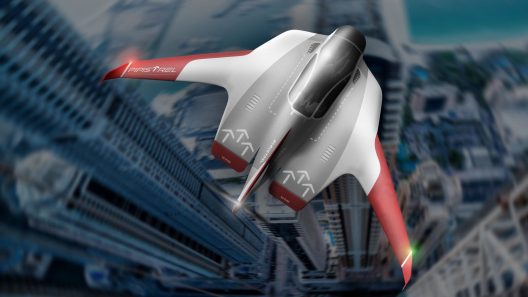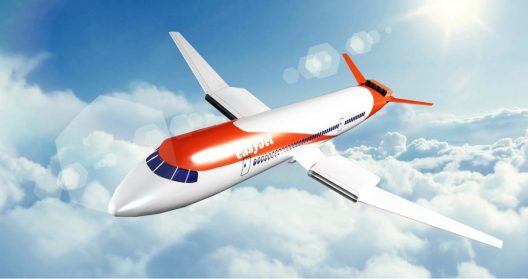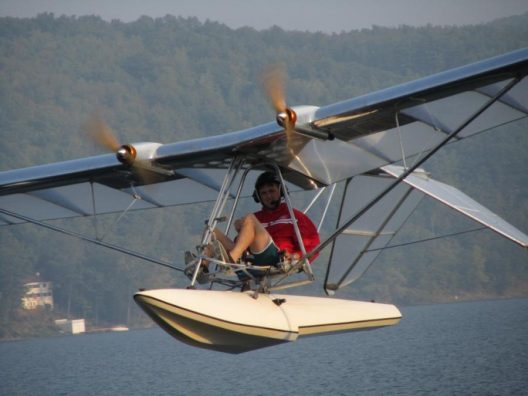The 2019 Sustainable Aviation Symposium is moving to a new date and location – and a new inclusiveness.
The University of California, Berkeley Institute for Transportation Studies (ITS) will host the 2019 Sustainable Aviation Symposium (SAS) on October 7-8 of 2019. SAS 2019 is focused on safe, quiet, electric aviation solutions to the most pressing problems of our age: climate change, urban surface gridlock, and the need for integrated community and urban planning to enable high proximity aviation at meaningful scale.
Dr. Jasenka Rakas, founder and head of the Airport Design Studio at the University of California at Berkeley, and Sustainable Aviation Foundation founder and President Dr. Brien Seeley will co-chair the meeting that will present a challenging review of aviation’s green future.
This year’s symposium will convene thought leaders to answer these core questions:
- Which systems will win a dominant share of the market and why?
- How will “urban air vehicles” be made “airline-safe” and autonomous?
- What new technologies are needed to converge to optimize the UAM system?
- How will airparks affect wildlands, ground transit and communities large and small?
- How will UAM freight and passengers make last-mile connections?
- How will the air traffic of UAM be managed?
- What roles will urban air vehicles have in emerging economies or natural disasters?
As electric aviation attracts growing investment and aerospace majors enter the space, answers to the questions above are crucial.
SAS 2019 ticketing and agenda info will be available soon. Please join our mailing list or follow us on Twitter to receive updates.
About the UC Berkeley ITS
The University of California Institute for Transportation Studies develops leading-edge innovations influencing movement of people and goods and advancing sustainability, economic health, and quality of life.
For 70 years, the ITS has been recognized as one of the world’s leading centers for transportation research, education, and scholarship. The Institute was created in 1948 as an Organized Research Unit by the California state legislature. Today, it is the epicenter of study for all modes of transportation — from technological advances to social and environmental consequences.
About Dr. Jasenka Rakas
Dr. Jasenka Rakas is the deputy director of the UC Berkeley National Center of Excellence for Aviation Operations Research (NEXTOR) and its lead aviation researcher. She is the director of the Airport Systems Planning and Design Short Course and faculty in the Civil and Environmental Engineering Department. Dr. Rakas is a founder of the UC Berkeley Advanced Aviation Educational Program, the Airport Design Studio and the National Airspace System Infrastructure Conference.
Among other plaudits from colleagues and students, this should be of interest to those attending SAS 2019: “The high regard placed on Ms. Rakas’ expertise is evidenced by her selection with other renowned aviation experts in authoring papers and participating in high level discussions for the Transportation Research Board Millennium paper and technical conferences. Many of her contributions will continue to have lasting impact on the aviation community with a potential for significant transportation progress in the future.”
Norman T. Fujisaki, Deputy Director
Office of System Architecture and Investment Analysis, Federal Aviation Administration, Washington, DC
About the Sustainable Aviation Foundation
The Sustainable Aviation Foundation (SAF) is dedicated to improving human life through advances in aviation. Our focus is on the application of electric aviation at a meaningful scale to help solve these pressing problems of our age:
- Climate change and climate-related disasters
- Surface gridlock and the attendant losses of human happiness and productivity
- The need for humane urban planning for billions of humans
SAF believes that by bringing together experts and practitioners from a wide array of disciplines we can collectively advance Urban Air Mobility (UAM) as a sustainable and practical mass-transit solution.

Will electric vertical takeoff and landing or fixed-wing aircraft be the craft of choice? Or will the future flyer be a combination of ingredient like this Pipistrel?
Sustainable Aviation Foundation, Inc. is an all-volunteer, non-profit, 501c3 educational organization organized and operated exclusively for public, charitable and educational purposes as a private foundation. It is recognized by the IRS as a tax-exempt private foundation under Section 501 (c) (3) of the Internal Revenue Code.
About Dr. Brien Seeley
Dr. Brien Seeley is a full time eye surgeon and medical leader in Sonoma County, California and founder and President of the Sustainable Aviation Foundation. A graduate of UC Berkeley, he earned his M. D. degree from UCSF in just three years. In 1973, while a medical student, he designed and hand-built his own 70 mph, street-licensed electric car and drove it to the hospital each day as an intern. During his residency in eye surgery at UCSF, he devoted his two-week vacation to earning his pilot’s license, and this began a life-long passion for aviation. He studied aeronautical engineering and helped build two experimental homebuilt aircraft. He is a senior member of the American Institute of Aeronautics and Astronautics (AIAA).
In May 2007, Brien conceived and organized the first-ever Electric Aircraft Symposium in San Francisco, going on to serve as its annual Program Chair for 9 years. That same year, Brien designed and wrote the competition rules for the first ever NASA Centennial Challenge for aeronautics. In 2011, he designed and chaired the NASA Green Flight Challenge sponsored by Google, which remains the largest prize ever given for aviation. In 2015, Brien founded the Sustainable Aviation Foundation (SA) in order to advance technologies and innovations pertinent to environmentally friendly, electrically powered aircraft and to help bring forth their implementation into safe, quiet, useful aircraft that can benefit the public, the environment and the transportation system. Brien authored the seminal 2015 AIAA paper that conceived Regional Sky Transit as a future transportation system. For 2016, Brien devoted his Program Chairing efforts to the first annual Sustainable Aviation Symposium, which convened a globally renowned faculty focused on the future of quiet, electrically powered aircraft.





